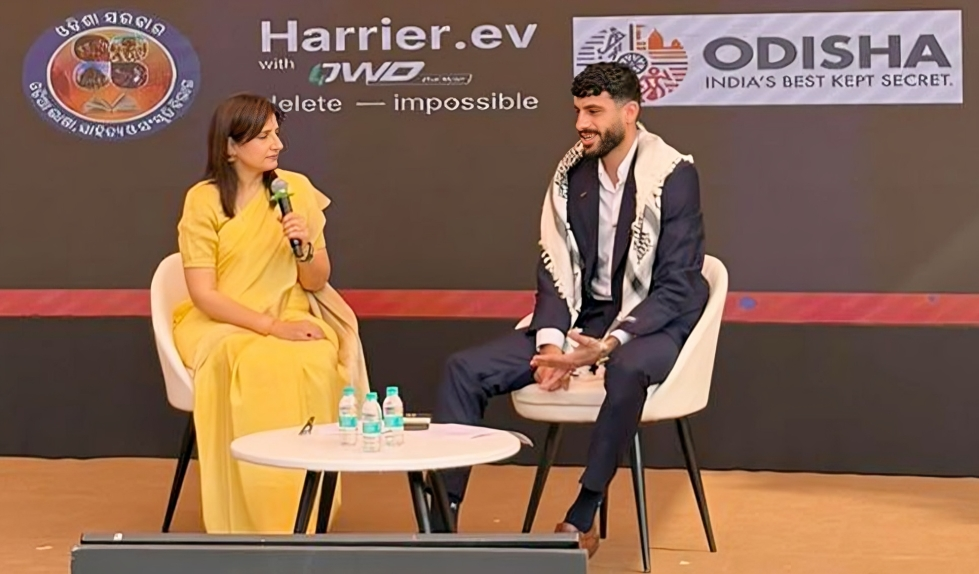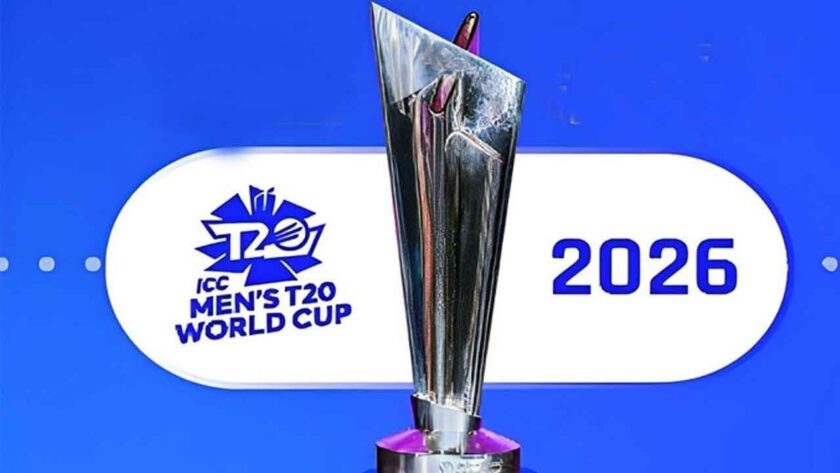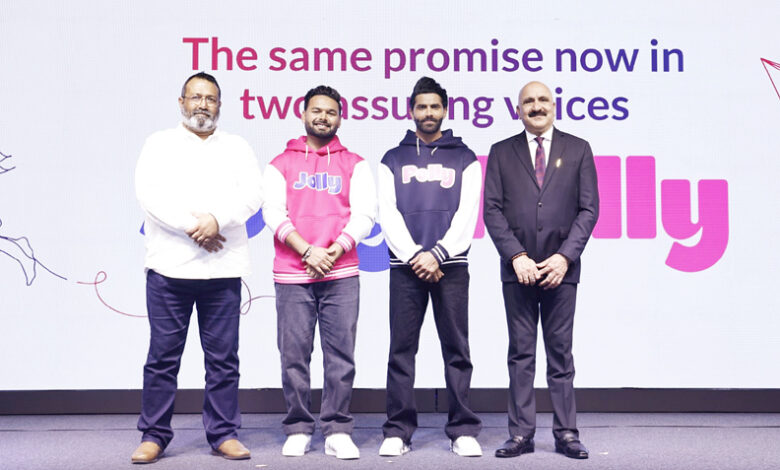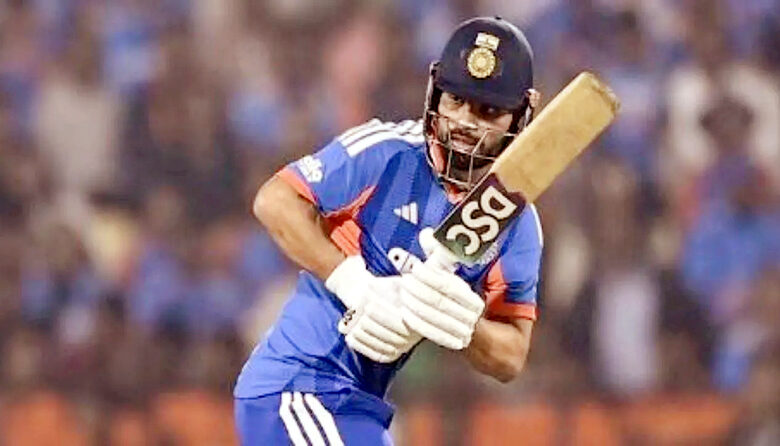New Delhi: Every once in a while, a sporting story comes along to remind us that the real race begins long before the whistle blows. It begins in the shadows, in silence, in places where dust and danger often replace tracks and stadium lights. That is exactly the story that unfolded at the Ekamra Sports Literature Festival, where Palestinian middle-distance runner Mohammed Yahya Suleiman Dwedar revisited his deeply human journey — a journey carved out of conflict, loss, and improbable endurance.
Joined in conversation by media entrepreneur and Ekamra co-founder Shireen Sethi, the session moved far beyond athletics. It became a window into a life lived on the edge of uncertainty, where every training run is a negotiation with risk, and every race is an act of resistance — an act of hope.

“I began running without shoes… and found my way.”
Mohammed is just 24. But his story sounds like it belongs to someone who has lived many lives. He began running in 2011 — barefoot, on school grounds, long before he understood what the 800 metres meant or how far it would take him.
“When I run,” he said softly, “I feel comfort. I feel this is my way. I need to do something for my family, my neighbors, my people.”
He trains in Jericho. Not on a track — because there is none. Not in a stadium — because it doesn’t exist. His practice ground is the street. His gym is whatever space he can find. His training schedule is dictated by the situation around him, often chaotic, unpredictable, unsafe.
“Sometimes I cannot go outside. Sometimes for days. That is difficult for athlete. But I must continue.”
Representing Palestine: A Weight That Lives in the Heart
Mohammed is one of the only athletes from Palestine to compete on the world stage in the men’s 800m. Standing on the Olympic track — first in Paris 2024, then again in Tokyo 2025 — he felt a surge of pride mixed with heartbreak.
“Representing Palestine is honor and responsibility. The world knows my country for conflict. But I want them to know us also for ambition, excellence, perseverance.”
In Tokyo, his body was on the starting line — but his heart and mind were somewhere else.
“When he said ‘On your mark’… I was not there. I was thinking of my father, my people, what is happening back home.”
Even then, he ran. He finished with a respectable 1:53. “This is world athletics,” he said. “And I am there. That is miracle.”
A Father’s Dream That Became His Compass
Mohammed’s father, who passed away before he became an Olympian, remains the emotional spine of his journey.
“My father was my sponsor. After he died… I have no sponsor. I sponsor myself. But I think of him every day. When I stand on track, my body runs, but my heart runs for him.”
It was his father who guided him to choose the 800m — a brutal combination of speed, endurance, and strategy.
“He told me, long distance not for you. You can control 800. You can watch two laps. I love 800.”
Training Under Occupation: The Invisible Race
His daily routine reveals the starkness of his reality.
He trains at 5 or 6 a.m.
He runs on uneven roads.
He has no physio, no recovery room, no professional gym, no nutritionist.
He often struggles to sleep safely or step outside without fear.
Even getting visas for competitions is a battle.
“Sometimes visa too late. Sometimes denied. Many competitions I miss. I don’t want to think of visa. I want to think of running.”

Before Tokyo, World Athletics sent him for a short camp in Germany. For the first time, he touched an actual track. He got real spikes there — shoes he had never worn before.
Mental Strength: A Different Dimension
Shireen asked him the question every athlete is asked: How do you stay mentally strong?
But Mohammed’s reality makes the question heavier.
“The mental strength needed for me… different level,” she remarked.
He nodded gently.
“I prepare my mind. I must not think of what happening. But of course, I think. My people need me. I want to give them medals. I want to give them story. So I continue.”
Role Model, Guide, Brother
Mohammed is the youngest in his family — two brothers, two sisters — but he calls himself “the guide.”
At his club back home, children and teenagers try to emulate him. They borrow his seriousness, his routines, his discipline.
“They watch me, follow me. They say, ‘We want to run like you.’ I am happy. I need to open the road for them. No young should have story like mine.”
A Messenger, Not a Hero
When asked if he sees himself as a hero, he shook his head.
“I am messenger. I carry message of Palestine. My message is for us to be free. We are like any people in world.”
His dream?
To improve his time.
To win medals.
To compete more.
To not walk alone — and make sure no young Palestinian athlete walks alone either.
A Journey of 40 Hours, and a Lifetime of Courage
To reach India for this session, Mohammed travelled from Ramallah to Jericho, Jericho to Amman, Amman to Bahrain, and finally to Delhi. It was long, tedious, uncertain — just like his journey in sport.
But on stage, he radiated something rare: humility built on hardship, and hope built on grit.
“I thank India for listening to me,” he said at the end. “This is not my language. I try English. But I want to tell my story. I want my people to know—keep dreaming, keep fighting, keep running. We can do it.”
And in that moment, the Ekamra Sports Literature Festival wasn’t just hosting a session.
It was witnessing history — the kind written not in medals, but in courage.









